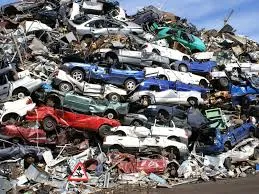

ઓક્ટોબર . 21, 2024 21:41 Back to list
The Importance of Steel Recycling Plants
In an era where sustainability and environmental conservation are increasingly crucial, steel recycling plants play a pivotal role in promoting a circular economy. The steel industry is one of the largest contributors to global carbon emissions, and the recycling of steel presents a viable solution to mitigate this issue, reduce waste, and conserve natural resources.
Steel is one of the most recycled materials in the world, with nearly 90% of it being recyclable. The process of recycling steel involves several steps, beginning with the collection of scrap steel from various sources, such as construction sites, automobile dismantlers, and industrial facilities. This collected scrap is then transported to recycling plants where it undergoes a meticulous sorting process. Advanced technologies, including magnetic separation and optical sorting, are employed to ensure that the steel is free from impurities before it is melted down.
Once sorted, the steel scrap is loaded into an electric arc furnace (EAF), which uses high temperatures to melt the metal. EAFs are favored in modern recycling facilities due to their efficiency and lower energy consumption compared to traditional blast furnaces. The benefits are twofold while melting down scrap steel requires about 75% less energy than producing new steel from virgin materials, it also leads to reduced CO2 emissions. In fact, recycling one ton of steel can save up to 1.5 tons of iron ore and significantly lower greenhouse gas emissions.
The recycled steel can then be formed into new products, ranging from construction materials to automotive parts. This closed-loop system not only conserves raw materials but also minimizes the amount of waste that ends up in landfills. Steel recycling plants thus contribute to a more sustainable economy by preserving natural resources and reducing the overall environmental footprint of steel production.

Moreover, steel recycling plants generate economic benefits and job opportunities. They create a demand for skilled labor in various fields, from machinery operation to engineering and environmental management. Communities near recycling facilities often experience economic stimulation through job creation and increased local business activity. The circular nature of steel recycling extends not just to environmental benefits but also to economic resilience.
Educational outreach and innovation in technologies at steel recycling plants further enhance their impact. By focusing on research and development, these facilities are continually improving their processes, ensuring they operate in the most environmentally friendly manner possible. This innovative spirit also extends to collaborating with other industries to develop new steel alloys and recycling techniques, thus pushing the boundaries of what can be achieved through recycling.
Despite the numerous advantages, challenges remain in the steel recycling industry. Market fluctuations for steel scrap can impact the viability of recycling operations, and the presence of contaminants in scrap materials can hinder processing efficiency. It is crucial for both the industry and policymakers to address these challenges through appropriate regulations, better collection systems, and increased public awareness of the importance of recycling.
In conclusion, steel recycling plants are essential components in the quest for a sustainable future. They play a critical role in reducing environmental impact, conserving resources, and contributing to the economy. By embracing recycling practices and supporting steel recycling initiatives, society can move towards a more responsible and sustainable model of production and consumption, ensuring that resources are used efficiently and ethically for generations to come. The future of steel recycling looks promising, and it is a testament to what can be achieved when we prioritize sustainability in our industrial processes.
Latest news
Troubleshooting Common Eddy Separator Problems
NewsJul.04,2025
The Role of Metal Recycling Plants in Circular Economy
NewsJul.04,2025
The Impact of Recycling Line Pickers on Waste Management Costs
NewsJul.04,2025
Safety Features Every Metal Shredder Should Have
NewsJul.04,2025
How Industrial Shredders Improve Waste Management Systems
NewsJul.04,2025
How Cable Granulators Contribute to Sustainable Recycling
NewsJul.04,2025